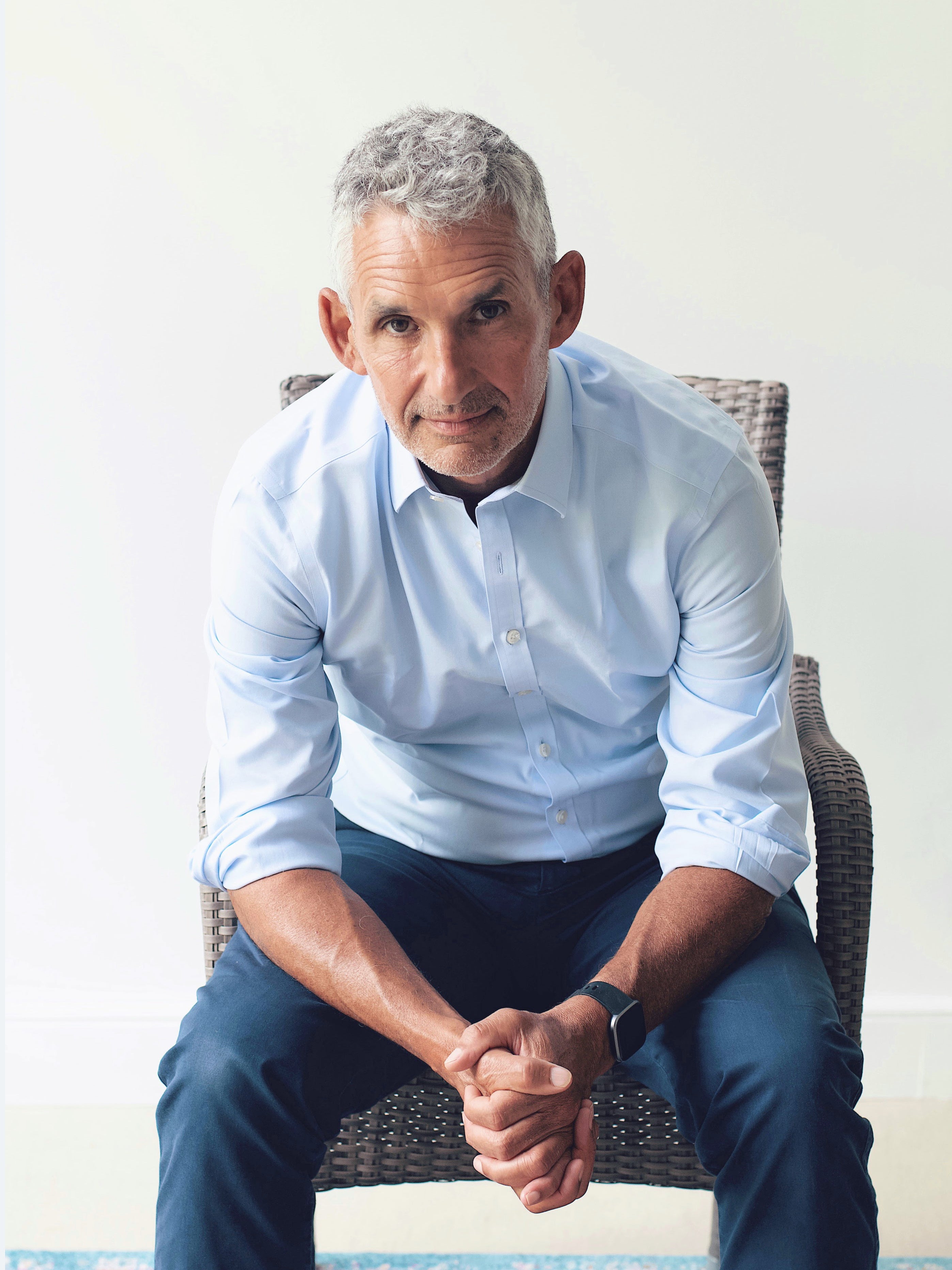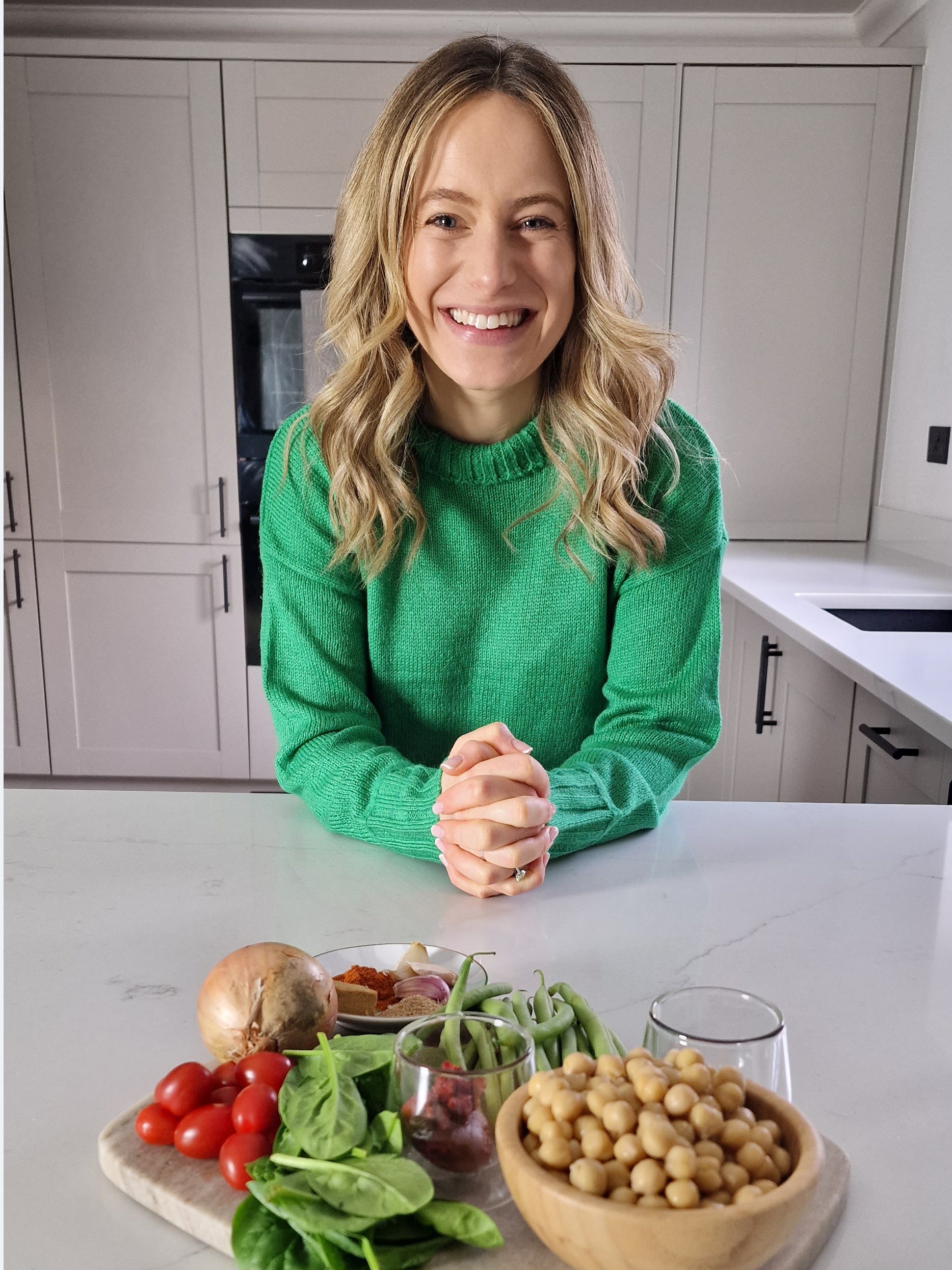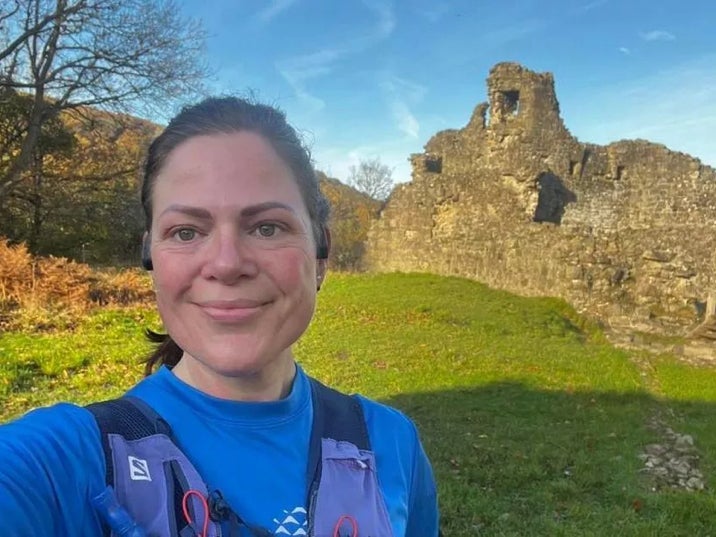The Independent's journalism is supported by our readers. When you purchase through links on our site, we may earn commission.
How to crack the healthy lifestyle: What high-performing people do every day
In the final part of her three-part series, Anna Magee has gone to experts to find out how they’ve managed to achieve the impossible – a near-perfect balance between health and a realistic lifestyle

It’s all very well to plan to reset your energy and do all the right things. Then, life happens.
There are kids, partners, professional demands, lack of sleep and the fact that whether it’s wine or chocolate or drinking too much coffee, all of us have a thing that might not qualify as strictly healthy.
But reality tells us that doesn’t really matter. Ask people who have a sustainable health regime while also juggling families and hectic lifestyles what they do, and you’ll find the same struggle with time, cravings and moods that the rest of us grapple with.
It’s just that over time and plenty of trial and error, they’ve figured out what works for them.
So far, we’ve brought you the science of how you can crack your high-performance code and we’ve also looked at the small mind shifts behavioural psychologists use to help people sustain healthy habits.
Now, for the final part of our Big Spring Health reset, we’re bringing you the reality of maintaining a healthy lifestyle. We’ve asked four high achievers about everything from their sleep routines, how they fit in exercise and hacks to make the daily struggle easier.
The scientist
Professor Tim Spector is a professor of epidemiology at King’s College London. He is the author of four bestselling books and co-founder of the Zoe app. The original pioneer of microbiome research, he is among the top 100 most cited scientists in the world. He lives in London with his wife, Veronique, a dermatologist and they have two grown-up children.

I wake up at 6.45am and sleep at 10.30pm I used to sleep a lot more erratically. But we did research at Zoe that found you get social jet lag (mood swings, depression and tiredness) when you change your sleep and wake times, for example with weekend lie-ins. It could also have a negative effect on your gut bacteria.
I’m not a fantastic sleeper I try not to use my phone or laptop for an hour before bed or to drink alcohol late at night anymore. I also make sure the bedroom is cooler than the rest of the house and write worries in a diary so I can think about them the next day instead of that night. It's still evolving but my sleep has improved.
I have a glass of red wine most nights As a medical student and doctor who lived through the Seventies and Eighties, my alcohol was probably much higher than average.
But I’m now always thinking about the pros and cons, so I drink a lot of low-alcohol beers and wines as well as kombucha which is 1 per cent alcohol but we don’t class it as alcoholic. I like the occasional beer too, but my regular drink would be a glass or two of red wine with maybe one night off drinking a week.
I used to not drink coffee My first published paper was about how coffee caused cancer. It was published in The Lancet in 1981 and turned out to be absolute rubbish. But researching my books and working with Zoe on the microbiome we discovered certain microbes in your gut only eat coffee which could explain why it might be good for us, for example it reduces heart attack by about a third. Knowing that I drink about three cups a day but not after 2pm.
I try and eat 30 plants a week I opt for lots of colourful and some bitter foods which both indicate healthy chemicals that are good for your gut. I also eat three portions of fermented foods a day, kefir and yoghurt in the morning and cheese in the evening. Several times a week I have fermented foods like kimchi (spicy fermented cabbage), sauerkraut (fermented cabbage) and kombucha.
I eat meat once or twice a month I get protein from beans and legumes most days and eat fish once a week. Eating meat occasionally helps my B12 levels which have always been low. You can get all the protein you need from a variety of plants. I do it for health and the environment and I’m feeling better for it.
I rely on exercise to get me going in the mornings Even if I’m tired, I’ll still do some exercise. It might be cycling or swimming or some weights or yoga for about 45 minutes. I also meditate twice a day for 20 minutes using a mantra I was given in the Seventies when I was 18 and I’ve been doing it ever since. It’s a technique called transcendental meditation that gets me focused even if I’m tired and stressed out. Meditating has become like brushing my teeth now.
The nutritionist
Jenna Hope is a new mum, nutritionist, regular on Sky, Channel 4 and This Morning, as well as a nutrition consultant to brands. She is the author of How to Stay Healthy: The nutritionist’s guide to optimising your immunity, which she wrote while pregnant last year.

I gave birth the week my book was due During the final edit I was in labour and I then had five days to go through the final version. I ended up having a C-section and didn’t take any maternity leave. I wouldn’t recommend it. Birth was intense physically, emotionally and professionally.
I work during my baby’s nap time and also evenings when she goes to bed at around 6pm as well as weekends. That way I can be off during her playtime and for feeding.
I try not to sacrifice sleep to work But I’ll sacrifice other things, like my social life. My daughter wakes up once or twice a night right now so I have to prioritise sleep when I can get it. I’m getting more now than I was in the beginning. I use a podcast called Sleep Cove which helps me wind down at night.
My daily walk is non-negotiable I have my high-energy dog that demands his exercise. To be as productive as possible in a short space of time the dog will get a walk, the baby will sleep, and I’ll be able to take some work calls whilst I’m walking.
A quick warm bath with Epsom salts is an instant relaxer It’s just five-10 minutes and the salts contain magnesium which helps with my sleep. I try and get off social media before bed but that’s hit and miss. I dim the lights and diffuse essential oils like lavender.
I drink matcha tea instead of coffee The caffeine in matcha is slower releasing. In coffee, it’s released quickly, spikes your blood sugar and cortisol (stress hormone) levels rise and then as the caffeine wears off leaves you feeling exhausted and requiring more coffee. With matcha, you get a gradual rise in energy and then a slow decline. I whisk the powder into a paste and then I add hot water and a bit of warm almond milk on top.
I start the day with a glass of water We’re partially dehydrated when we wake up and if we don’t rehydrate, we’re much more likely to overeat and it will affect our energy levels as well as our brain function. Throughout the day I prioritise fruits and vegetables and make sure that every meal I’ve got a good source of protein like salmon, chicken or beans.
When I’m not eating nutritious foods, my energy levels plummet I focus on a protein-rich breakfast to stabilise my blood sugar to start the day. That’s either a bowl of natural yoghurt with some berries, nut butter and oats, or maybe a bowl of porridge that I've added an egg white to while cooking.
I focus on whole foods 80 per cent of the time Then if I want a glass of wine or a slice of cake or a bar of chocolate 10 per cent of the time, I don’t feel bad about it. For snacks, I might have a couple of squares of dark chocolate, some roasted chickpeas, a handful of nuts or an apple and peanut butter.
The marathon runner
Helen Ryvar runs her own cleaning business and is the current Guinness World Records holder for running the most consecutive half-marathons by a woman, which she began in lockdown after the death of her former husband. She is currently on her second streak of 696.

My husband passed away and that got me into running The week before lockdown I had a knock at my front door and two police officers said they found my ex-husband dead in the street. We were divorced and had had a turbulent relationship, and he was bipolar and a binge alcoholic. It was still a terrible time and having to tell your kids that news and then be put on national lockdown was tough.
I had to make a decision to sort myself out – I was either going to drink or eat myself silly. So I started to run and soon realised I could run a half marathon every day without issue. I started off very slow and am still pretty slow! I started my first streak, but got to 111 consecutive runs breaking the record which was 101.
My second streak started on 1 May 2022 Since then an American man Mika Shevit has reached 1078 half marathons. He has inspired me to start my current streak, this time raising money for Mind and Cancer Research UK. I haven’t stopped since and today I’ve run 696 consecutive half-marathons.
For me, it’s about doing it consistently I started with committing to do it for seven days to see if I could, then a month and I just carried on. But people normally get bored after five or six days. Building good discipline and the routine of running at the same time and keeping that going is what carried me through.
I run between 4am and 6am A half marathon takes me about two hours each day but I plod, I don’t focus on speed or time and just enjoy it. I work full time as a cleaner, so I run very early. I’m in bed by 9pm, up at 4am with no snooze and out the door by 4.15am. If I’m tired I just think, “This is what we do now” as it’s not an option to opt out. You can’t base a streak on feelings, you have to be almost robotic.
I have a glass of water and then I run I might put some collagen into it. Sometimes I’ll take a pinch of Himalayan salt in a bit of squash which contains electrolytes but that's about it. No food. After the run it’s a cup of builder’s tea and toast and jam. My diet is pretty ordinary as I have to feed three hungry boys, so dinner is usually anything home-cooked and hearty.
A good set of waterproof gloves is key I always run outside, never on treadmills. I still struggle to find the best pair and have recently resorted to wearing gardening gloves. But Seal Skins are my favourite. They do mitts, which go over your gloves and socks and they’re a lifesaver if you get wet.
The trainer
Arj Thiruchelvam has a sports science degree from Loughborough University and has co-designed two Oxford Brookes University sports science degree programmes. He is also a UK Athletics performance coach, personal trainer and founder of Performance Physique.

I know how important sleep is but I’ve never needed much, I function incredibly well off three to five hours. My father is the same. It appears to be a genetic trait and there are now rare genetic mutations identified in short sleepers called NPSR1 and DEC2. I think I have them. Our newborn was initially waking up to eight times in the night and I was fine. Having said that, we know from research that undisturbed sleep is what creates the best quality recovery. So do as I say, not as I do.
I have about three coffees a day My first client is usually at 6am, so first thing, I’ll always have a pint of water and a coffee. But I avoid caffeine after 4pm.
I'm a proponent of flexible dieting It’s not one specific diet but more about sticking to a weekly calorie intake because we all know some days we’re hungrier than others. There will always be a source of protein as well as carbs and tonnes of vegetables with most meals. But on work days I might have a protein shake for breakfast then on Saturdays go to the bakery and pick up croissants, and that falls within a weekly calorie count I have set for myself. It’s about not demonising any food but asking yourself “Is it an everyday item or a once-a-week thing?”
I love white potatoes People think they leave you hungry but they’re actually a high-satiety food which means they help keep you fuller for longer and they’re great for fuelling your muscles, especially if you leave the skin on for fibre. I eat them as my carb source a few times a week. Sometimes it’s basmati rice and once a fortnight we might have pasta.
All my training is strength-based now Bending over to pick our baby up out of the cot was becoming painful as he’s 9kg. So I am back in the gym lifting a few times a week to increase my functional strength. I choose two body parts to focus on in each session and also spend 30 minutes doing mobility work around my hips, glutes and lower back.
I take creatine monohydrate I have it in water after my whey protein shake in the morning. It was originally used for improving power in athletes as it helped sprinters become faster and more explosive. Now we know it also helps develop muscle tissue and recovery. I also take vitamin D3 and in the last two months have started taking multivitamins, because looking after a child I’m probably not getting enough vitamins.
I use the 10-minute rule for tiredness If you’re knackered, you still turn up and do 10 minutes. If you still feel rubbish after 10 minutes, you've done a little bit and you can go home. But if you're feeling good, you carry on and you've done it, and that becomes the most important training session of the week because you’ve pushed past your comfort zone. None of my clients have ever gone home after 10 minutes.
Join our commenting forum
Join thought-provoking conversations, follow other Independent readers and see their replies
Comments


Bookmark popover
Removed from bookmarks